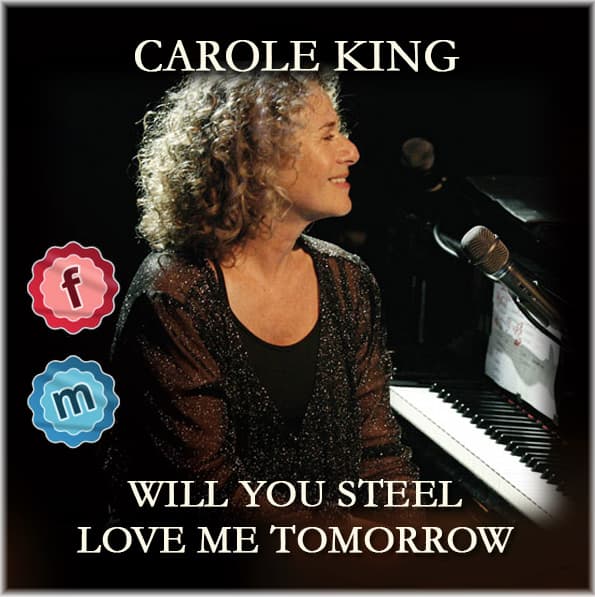
Carole King’s Timeless Classic: “Will You Love Me Tomorrow”
“Will You Love Me Tomorrow”, also known as “Will You Still Love Me Tomorrow”, is a song that has stood the test of time, captivating audiences since its inception. Written by the prolific duo Gerry Goffin and Carole King, this song has undergone several transformations, each adding a unique flavor to its already rich tapestry.
Originally recorded by The Shirelles in 1960, “Will You Love Me Tomorrow” became the first song by an all-girl group to reach number one on the Billboard Hot 100 chart. This version was characterized by its innocent and plaintive tone, perfectly capturing the anxieties of a young girl in love, wondering about the future of her relationship.
In 1971, Carole King, the musical genius behind the song, decided to record her own version for her second studio album, Tapestry. This album was a monumental success, solidifying King’s place in music history. Her rendition of “Will You Love Me Tomorrow” took on a new life, characterized by a slower tempo and a more introspective, mature tone. This interpretation was described by David Hepworth as “less like the pleas for gentleness on the part of a trembling virgin and more like a mature woman requiring parity in a relationship.”
King’s version featured the harmonious background vocals of Joni Mitchell and James Taylor, each performing on separate audio channels, adding layers of depth to the song. The commercial success of the Tapestry album led to significant airplay on album-oriented rock stations, bringing the song to an even broader audience.
The song became a staple in King’s live performances, with James Taylor recreating his part during their Troubadour Reunion Tour in 2010. This tour was a testament to the enduring appeal of both artists and their collaborative magic.
In 2013, “Will You Love Me Tomorrow” found a new audience through Beautiful: The Carole King Musical on Broadway. The musical featured the song four times, depicting its creation, King’s demo recording, The Shirelles’ performance, and King’s poignant rendition during a turbulent period in her marriage with Gerry Goffin. No other song was given as much prominence in the musical, underscoring its significance in King’s career and personal life.
“Will You Love Me Tomorrow” is not just a song but a narrative of love, vulnerability, and the quest for reassurance. Its evolution from a teenage anthem to a mature reflection on love demonstrates the timeless nature of King’s music. This song continues to resonate with audiences, proving that the questions it raises are universal and eternal. Carole King‘s ability to convey deep emotion and nuanced understanding of relationships through her music is what makes “Will You Love Me Tomorrow” a classic that will be cherished for generations to come.